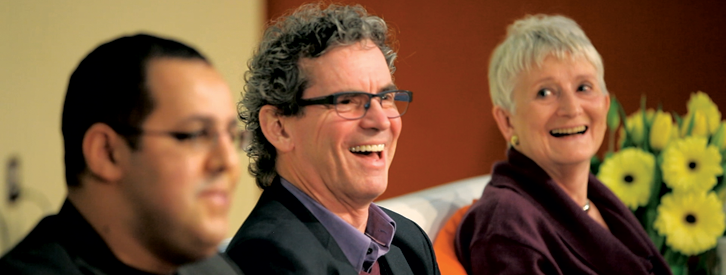For decades, security experts, privacy advocates, and whistleblowers have warned us about the growing surveillance capacity of states, the risk of technology in the hands of organized crime, and the increasing role that corporations play in violating citizens’ rights to privacy and anonymity. Some have listened, but many have not.
When talking about the growing dangers of mass surveillance as a result of technological advances, I’m frequently met with apprehensive stares. There’s a certain look that says, “Uh-oh, this poor conspiracy theorist, railing against the powers that be.” You see, being paranoid doesn’t mean they’re not out to get you.
So, I am heartened by the growing public interest in surveillance and counter-surveillance. Thanks to Edward Snowden’s courageous whistle-blowing, Lavabit’s Ladar Levison’s public fight for our privacy rights, and the infiltration of major media outlets like the New York Times by foreign actors, It is clear that paranoia is no longer just for crazies.
As we start to grasp the scope and scale of unchecked surveillance, it is important to underscore the need to understand its potential long-term consequences for human rights organizations and the development of free media. In the context of human rights documentation and journalistic work, the implications of technically advanced surveillance can be tremendous.
Human rights defenders and journalists work in environments where resources are scarce and adversaries have the upper hand. Throughout history, they have found creative and innovative ways to confront social injustice and challenge abuses of power. Technology is increasingly playing a key role in their ability to do so, which, in part, is possible thanks to transnational solidarity. Many international organizations have spearheaded technology transfer and capacity building for those on the frontlines of the struggle for accountability, transparency, and justice. I’d argue that large-scale surveillance programs, often in cooperation with the private sector, are likely to undermine the credibility of the capacity-building and technology-transfer organizations that have long supported partners around the world. For those who live and work in the “last mile” of the telecommunications networks—that area where users interface with technology—the implications of surveillance can be catastrophic.
Thus, it is increasingly important that we are able to further document and understand the harm of surveillance, as well as to actively debate the best path forward for its mitigation and prevention, both from a technical and a policy perspective.
To that end, it is necessary to support methodologically sound research—by organizations such as Citizen Lab, Human Rights Watch, Privacy International, and Electronic Frontier Foundation—as it can shape the public debate and promote policy change that respects and protects our rights in the digital age.
Perhaps because of the media’s emphasis on the harm to individual privacy and the notion of individual rights, the significance of surveillance to the collective aspects of our lives is often underappreciated. In terms of human rights work, this results in diminishing of trust between organizations. At Benetech, we experience the difficulties this poses for our efforts to promote free and open human rights technology in the Global South. While our partners and collaborators trust our individual commitment to the advancement of human rights, they are increasingly wary of our potential linkage to a massive spying network.
We need an immediate action to counter the effects of surveillance. As I prepare for the Cyber Dialogue conference—where an influential mix of global leaders from government, civil society, academia, and the private sector will discuss the likely implications of surveillance for rights, security, and openness—I’d like to invite you to follow the conversation as the right to privacy is not only yours and mine, but ours.
About Enrique Piracés
Enrique Piracés is the Vice President of the Human Rights Program at Benetech, a nonprofit technology company that provides open technology for the advancement and promotion of global human rights. Follow him on Twitter: @epiraces










